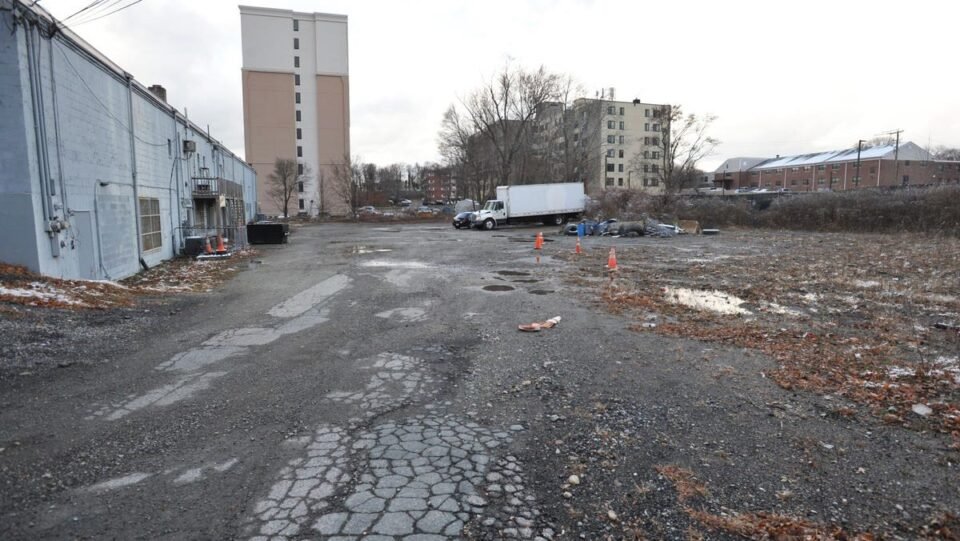WEYMOUTH − The owners of commercial property whose bid to have it rezoned was vetoed by the mayor have decided to sell it.
After Mayor Robert Hedlund’s veto of a unanimous town council vote to rezone the 1-acre parcel at 238 Washington St. and two other unrelated but neighboring properties, developers and co-owners Christopher Bruce and Jason Kennedy were faced with a decision: create a development plan that would fit into the existing zoning or sell.
The property cannot be rezoned for another two years because of the veto, according to the town charter. Plus, the developers primarily build residential properties, not commercial uses that are allowed in the existing zoning.
While it’s not yet on the market, the developers will be asking for $2.2 million for the property, which has a single-story commercial building on it. That’s $800,000 more than what they paid for it in January 2023.
Previous coverage: Weymouth council OKs zoning change. Mayor warns of ‘exploitation.’ Will it stick?
“It was not our goal to consider selling it at this point,” Kennedy said. “I feel just very disappointed with how this has all come together.”
Putting the property up for sale is the “most financially viable option to move onto other projects,” he said.
The property was previously under the town’s Commercial Corridor Overlay District, which had been created to encourage developers to redevelop so-called “blighted properties.” The town council decided to remove some properties from the zoning, including 238 Washington St.
The property is currently zoned for business, which could allow uses such as a hotel, professional business office space or a trade school. A special permit could allow a service station, a parking garage or a wholesale business.
Bruce and Kennedy had asked the town to change the zoning of 238 Washington St. and two properties to the north – The Bicycle Link and Union Towers – to the town’s Village Center Overlay District. That zoning allows homes, mixed-use commercial space and funeral homes, with a special permit or additional review allowing a drive-thru restaurant, a bed-and-breakfast or an apartment complex with more than 20 units. Allowing the zoning for all three parcels would physically connect them to the existing overlay district.
The developers did not have blueprints to show what their vision might look like, but they hoped to build a mixed-use development with between 35 and 50 apartments and three commercial spaces. The proposal would have had to go through additional scrutiny by the planning board.
But Hedlund and town planning staff did not support the zoning change, saying it was akin to “spot zoning,” where one parcel’s zoning does not match that of the surrounding properties, and they were concerned about the level of public participation in the process. The developers denied it was spot zoning.
The town council approved the zoning change by a vote of 11-0 in December. The mayor vetoed the vote two weeks later.
Hannah Morse covers growth and development for The Patriot Ledger. Contact her at hmorse@patriotledger.com.

